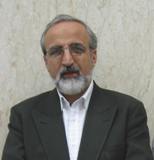|
Infodemic
An infodemic is a rapid and far-reaching spread of both accurate and inaccurate information about something, such as a disease. The word is a portmanteau of "information" and "epidemic." As facts, rumors, and fears mix and disperse, it becomes difficult to learn essential information about an issue. In 2020, alongside the COVID-19 pandemic, an infodemic of disinformation raises concerns for information quality in online environment. This effect was demonstrated in a study of news stories shared on Twitter; in the study, news stories rated as incorrect by fact-checking organizations spread to far more people than factual articles did. History In his 11 May 2003 article in the ''Washington Post''also published in ''Newsday'', ''The Record'', the ''Oakland Tribune'', and the ''China Daily''foreign policy expert David Rothkopf, referred to the information epidemicor "infodemic", in the context of the 2002–2004 SARS outbreak. The outbreak of SARS, which was caused by Severe acute ... [...More Info...] [...Related Items...] OR: [Wikipedia] [Google] [Baidu] |
Misinformation Related To The COVID-19 Pandemic
False information, including intentional disinformation and conspiracy theories, about the scale of the COVID-19 pandemic and the origin, prevention, diagnosis, and treatment of the disease has been spread through social media, text messaging, and mass media. False information has been propagated by celebrities, politicians, and other prominent public figures. Many countries have passed laws against "fake news", and thousands of people have been arrested for spreading COVID-19 misinformation. The spread of COVID-19 misinformation by governments has also been significant. Commercial scams have claimed to offer at-home tests, supposed preventives, and "miracle" cures. Several religious groups have claimed their faith will protect them from the virus. Without evidence, some people have claimed the virus is a bioweapon accidentally or deliberately leaked from a laboratory, a population control scheme, the result of a spy operation, or the side effect of 5G upgrades to cellular ... [...More Info...] [...Related Items...] OR: [Wikipedia] [Google] [Baidu] |
COVID-19 Pandemic
The COVID-19 pandemic, also known as the coronavirus pandemic, is an ongoing global pandemic of coronavirus disease 2019 (COVID-19) caused by severe acute respiratory syndrome coronavirus 2 (SARS-CoV-2). The novel virus was first identified in an outbreak in the Chinese city of Wuhan in December 2019. Attempts to contain it there failed, allowing the virus to spread to other areas of Asia and later worldwide. The World Health Organization (WHO) declared the outbreak a public health emergency of international concern on 30 January 2020, and a pandemic on 11 March 2020. As of , the pandemic had caused more than cases and confirmed deaths, making it one of the deadliest in history. COVID-19 symptoms range from undetectable to deadly, but most commonly include fever, dry cough, and fatigue. Severe illness is more likely in elderly patients and those with certain underlying medical conditions. COVID-19 transmits when people breathe in air contaminated by droplets and ... [...More Info...] [...Related Items...] OR: [Wikipedia] [Google] [Baidu] |
Disinformation
Disinformation is false information deliberately spread to deceive people. It is sometimes confused with misinformation, which is false information but is not deliberate. The English word ''disinformation'' comes from the application of the Latin prefix ''dis-'' to ''information'' making the meaning "reversal or removal of information". The rarely used word had appeared with this usage in print at least as far back as 1887. Some consider it a loan translation of the Russian ''dezinformatsiya'', derived from the title of a KGB black propaganda department. Defector Ion Mihai Pacepa claimed Joseph Stalin coined the term, giving it a French-sounding name to claim it had a Western origin. Russian use began with a "special disinformation office" in 1923. Disinformation was defined in '' Great Soviet Encyclopedia'' (1952) as "false information with the intention to deceive public opinion". Operation INFEKTION was a Soviet disinformation campaign to influence opinion that the U. ... [...More Info...] [...Related Items...] OR: [Wikipedia] [Google] [Baidu] |
Portmanteau
A portmanteau word, or portmanteau (, ) is a blend of wordsGarner's Modern American Usage , p. 644. in which parts of multiple words are combined into a new word, as in ''smog'', coined by blending ''smoke'' and ''fog'', or ''motel'', from ''motor'' and ''hotel''. In , a portmanteau is a single morph that is analyzed as representing two (or more) underlying s. When portmanteaus shorten es ... [...More Info...] [...Related Items...] OR: [Wikipedia] [Google] [Baidu] |
Journal Of Medical Internet Research
The ''Journal of Medical Internet Research'' is a peer-reviewed open-access medical journal established in 1999 covering eHealth and "healthcare in the Internet age". The editors-in-chief are Gunther Eysenbach and Rita Kukafka. The publisher is JMIR Publications. Publisher The journal is published by JMIR Publications, which was a cofounder of the Open Access Scholarly Publishers Association and is known for other journal titles as well, which mostly focus on specific subtopics within eHealth, such as mHealth (JMIR mHealth and uHealth), serious games (JMIR Serious Games), mental health (JMIR Mental Health), and cancer (JMIR Cancer). JMIR Publications is also notable for being one of the fastest-growing companies in Canada in 2019 . Controversy JMIR Publications has faced criticism for initially using the same editorial board of its main journal for its sister journals and for offering a fast-track review pathway for a surcharge. Editor-in-chief Gunther Eysenbach commented that t ... [...More Info...] [...Related Items...] OR: [Wikipedia] [Google] [Baidu] |
Meme
A meme ( ) is an idea, behavior, or style that spreads by means of imitation from person to person within a culture and often carries symbolic meaning representing a particular phenomenon or theme. A meme acts as a unit for carrying cultural ideas, symbols, or practices, that can be transmitted from one mind to another through writing, speech, gestures, rituals, or other imitable phenomena with a mimicked theme. Supporters of the concept regard memes as cultural analogues to genes in that they self-replicate, mutate, and respond to selective pressures. In popular language, a meme may refer to an Internet meme, typically an image, that is remixed, copied, and circulated in a shared cultural experience online. Proponents theorize that memes are a viral phenomenon that may evolve by natural selection in a manner analogous to that of biological evolution. Memes do this through the processes of variation, mutation, competition, and inheritance, each of which influences a meme's ... [...More Info...] [...Related Items...] OR: [Wikipedia] [Google] [Baidu] |
Information Overload
Information overload (also known as infobesity, infoxication, information anxiety, and information explosion) is the difficulty in understanding an issue and effectively making decisions when one has too much information (TMI) about that issue, and is generally associated with the excessive quantity of daily information. The term "information overload" was first used as early as 1962 by scholars in management and information studies, including in Bertram Gross' 1964 book, ''The Managing of Organizations,'' and was further popularized by Alvin Toffler in his bestselling 1970 book ''Future Shock.'' Speier et al. (1999) said that if input exceeds the processing capacity, information overload occurs, which is likely to reduce the quality of the decisions. In a newer definition, Roetzel (2019) focuses on time and resources aspects. He states that when a decision-maker is given many sets of information, such as complexity, amount, and contradiction, the quality of its decision is decre ... [...More Info...] [...Related Items...] OR: [Wikipedia] [Google] [Baidu] |
Collective Consciousness
Collective consciousness, collective conscience, or collective conscious (french: conscience collective) is the set of shared beliefs, ideas, and moral attitudes which operate as a unifying force within society.''Collins Dictionary of Sociology'', p93. In general, it does not refer to the specifically moral conscience, but to a shared understanding of social norms. The modern concept of what can be considered collective consciousness includes Solidarity (sociology), solidarity attitudes, memes, extreme behaviors like group-think and herd behavior, and collectively shared experiences during collective rituals and dance parties. Rather than existing as separate individuals, people come together as dynamic groups to share resources and knowledge. It has also developed as a way of describing how an entire community comes together to share similar values. This has also been termed "hive mind", "Collective intelligence, group mind", "mass mind", and "social mind". Historical use of ... [...More Info...] [...Related Items...] OR: [Wikipedia] [Google] [Baidu] |
University Of Oxford
, mottoeng = The Lord is my light , established = , endowment = £6.1 billion (including colleges) (2019) , budget = £2.145 billion (2019–20) , chancellor = The Lord Patten of Barnes , vice_chancellor = Louise Richardson , students = 24,515 (2019) , undergrad = 11,955 , postgrad = 12,010 , other = 541 (2017) , city = Oxford , country = England , coordinates = , campus_type = University town , athletics_affiliations = Blue (university sport) , logo_size = 250px , website = , logo = University of Oxford.svg , colours = Oxford Blue , faculty = 6,995 (2020) , academic_affiliations = , The University of Oxford is a collegiate research university in Oxf ... [...More Info...] [...Related Items...] OR: [Wikipedia] [Google] [Baidu] |
Financial Times
The ''Financial Times'' (''FT'') is a British daily newspaper printed in broadsheet and published digitally that focuses on business and economic current affairs. Based in London, England, the paper is owned by a Japanese holding company, Nikkei, with core editorial offices across Britain, the United States and continental Europe. In July 2015, Pearson sold the publication to Nikkei for £844 million (US$1.32 billion) after owning it since 1957. In 2019, it reported one million paying subscriptions, three-quarters of which were digital subscriptions. The newspaper has a prominent focus on financial journalism and economic analysis over generalist reporting, drawing both criticism and acclaim. The daily sponsors an annual book award and publishes a " Person of the Year" feature. The paper was founded in January 1888 as the ''London Financial Guide'' before rebranding a month later as the ''Financial Times''. It was first circulated around metropolitan London by James Sherid ... [...More Info...] [...Related Items...] OR: [Wikipedia] [Google] [Baidu] |
Human Rights
Human rights are Morality, moral principles or Social norm, normsJames Nickel, with assistance from Thomas Pogge, M.B.E. Smith, and Leif Wenar, 13 December 2013, Stanford Encyclopedia of PhilosophyHuman Rights Retrieved 14 August 2014 for certain standards of human behaviour and are regularly protected in Municipal law, municipal and international law. They are commonly understood as inalienable,The United Nations, Office of the High Commissioner of Human RightsWhat are human rights? Retrieved 14 August 2014 fundamental rights "to which a person is inherently entitled simply because she or he is a human being" and which are "inherent in all human beings",Burns H. Weston, 20 March 2014, Encyclopædia Britannicahuman rights Retrieved 14 August 2014. regardless of their age, ethnic origin, location, language, religion, ethnicity, or any other status. They are applicable everywhere and at every time in the sense of being Universality (philosophy), universal, and they are Egalitari ... [...More Info...] [...Related Items...] OR: [Wikipedia] [Google] [Baidu] |
Democracies
Democracy (From grc, δημοκρατία, dēmokratía, ''dēmos'' 'people' and ''kratos'' 'rule') is a form of government in which the people have the authority to deliberate and decide legislation (" direct democracy"), or to choose governing officials to do so ("representative democracy"). Who is considered part of "the people" and how authority is shared among or delegated by the people has changed over time and at different rates in different countries. Features of democracy often include freedom of assembly, association, property rights, freedom of religion and speech, inclusiveness and equality, citizenship, consent of the governed, voting rights, freedom from unwarranted governmental deprivation of the right to life and liberty, and minority rights. The notion of democracy has evolved over time considerably. Throughout history, one can find evidence of direct democracy, in which communities make decisions through popular assembly. Today, the dominant form of ... [...More Info...] [...Related Items...] OR: [Wikipedia] [Google] [Baidu] |







.jpg)